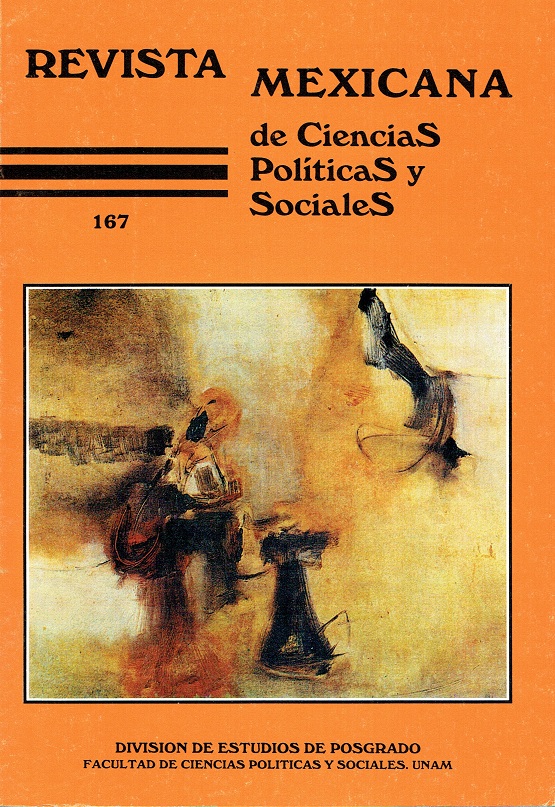Reichenbach: el empirismo se quedó sin inducción
Main Article Content
Abstract
Downloads
Article Details
Citas en Dimensions Service
References
Brody, Baruch A. y Richard E. Graudy, Readings in the philosophy of Science, Englewood Cliffs, Nueva Jersey, Prentice Hall, 2a. ed., 1989, 531 p. [la. ed., 1971].
Curd, Martin V., “The logic of discovery: an analysis of three approaches”, en Baruch A. Brody y Richard E. Graudy, 1989, pp. 417- 430 [ed. original, 1980].
Hume, David, Tratado de la naturaleza humana. Autobiografía, Félix Duque, (ed.), Madrid, Editora Nacional, 1977, t. i, 427 p. [ed. original, 1739].
Maldonado-Veloza, Fabio, “Mario Bunge y la ciencia como proceso y producto”, Revista Venezolana de Ciencia Política, vol. I, núm. 2, Mérida, Universidad de Los Andes, CEPSAL-Posgrado de Ciencia Política, agosto de 1988, pp. 327-341.
Maldonado-Veloza, Fabio, “No existe la inducción: la objeción de Lakatos a Popper”, Interciencia, vol. xix, núm. 5, septiembre-octubre de 1994.
Maldonado-Veloza, Fabio, “Popper y el intento instrumentalista de la inducción de Reichenbach”, ponencia presentada en el IV Congreso Venezolano de Filosofía de la Sociedad Venezolana de Filosofía y el Posgrado de Filosofía, Mérida, Universidad de Los Andes, Departamento de Filosofía, Facultad de Humanidades y Educación, 25-28 de octubre de 1994.
Moulines, Ulises, Pluralidad y recursión: estudios epistemológicos, Madrid, Alianza Editorial (Alianza Universidad, 698), 1991, 310 p.
Popper, Karl, Conjeturas y refutaciones: el desarrollo del conocimiento científico, Néstor Míguez (trad.), Barcelona, Paidós, 1983, 513 p. [ed. original, 1963; 4a. ed. inglesa, 1972].
Popper, Karl, La lógica de la investigación científica, Víctor Sánchez de Zavala (trad.), Madrid, Tecnos (Estructura y función: El porvenir actual de la ciencia), 1985, 451 p. [ed. original, 1934].
Popper, Karl, Realismo y el objetivo de la ciencia: post scriptum a La lógica de la investigación científica, W. W. Bartley III (ed.), Marta Sansigre Vidal (trad.), Madrid, Tecnos, 1985, vol. i, 462 p. [ed. original, 1956].
Reichenbach, Hans, La filosofía científica, Horacio Flores Sánchez (trad.), México, Fondo de Cultura Económica, 1953, 335 p. [la. ed. en inglés, 1951].
Reichenbach, Hans,Experience and prediction: an analysis of the foundations and the structure of knowledge, Chicago, The University of Chicago Press, 1938, 410 p.
Rusell, Bertrand, Historia de la filosofía occidental, II: La filosofía católica (continuación); La filosofía moderna, Julio Gómez de la Serna y Antonio Dorta (trads.), Buenos Aires, Espasa y Calpe, 1947, 466 p. [ed. original, 1945].
Rusell, Bertrand, El conocimiento humano, Néstor Míguez (trad.), Barcelona, Orbis, 1983, 511 p. [ed. original, 1948].
Suárez-íñiguez, Enrique, “La filosofía de la ciencia de Karl Popper”, Revista Mexicana de Ciencias Políticas y Sociales, vol. xl, núm. 159, quinta época, enero-marzo de 1995, pp. 9-32.

La Revista Mexicana de Ciencias Políticas y Sociales publicada por la Universidad Nacional Autónoma de México se distribuye bajo una Licencia Creative Commons Atribución-NoComercial-SinDerivar 4.0 Internacional.
Basada en una obra en http://www.revistas.unam.mx/index.php/rmcpys/
La RMCPyS autoriza a sus colaboradores que suban una copia de sus trabajos publicados en sus webs personales o en cualquier repositorio de acceso abierto, siempre y cuando se mencione específicamente a la Revista Mexicana de Ciencias Políticas y Sociales como fuente original de procedencia, citando el año y número del ejemplar respectivo y añadiendo el enlace a la página web donde este órgano editorial puede ser consultado in toto, de manera abierta y gratuita en: <www.revistas.unam.mx/index.php/rmcpys>.
Las y los lectores tienen libertad para:
Compartir, copiar y redistribuir el material en cualquier medio o formato.
El licenciante no puede revocar estas libertades en tanto usted siga los términos de la licencia.
De acuerdo con los siguientes términos:
- Atribución: la/el lector/a debe reconocer el crédito de una obra de manera adecuada, proporcionar un enlace a la licencia, e indicar si se han realizado cambios. Puede hacerlo en cualquier forma razonable, pero no de forma tal que sugiera que tiene el apoyo del licenciante o lo recibe por el uso que hace.
- No comercial: la/el lector/a no puede hacer uso del material con fines comerciales.
- Si se mezcla, transforma o se desarrolla a partir de la obra licenciada, no se permite la distribución del material modificado.
Cargos por gestión de artículos
La Revista Mexicana de Ciencias Políticas y Sociales NO cobra tarifas por recibir, procesar o publicar los artículos (Article Processing Charge [APC]) enviados por los autores.

